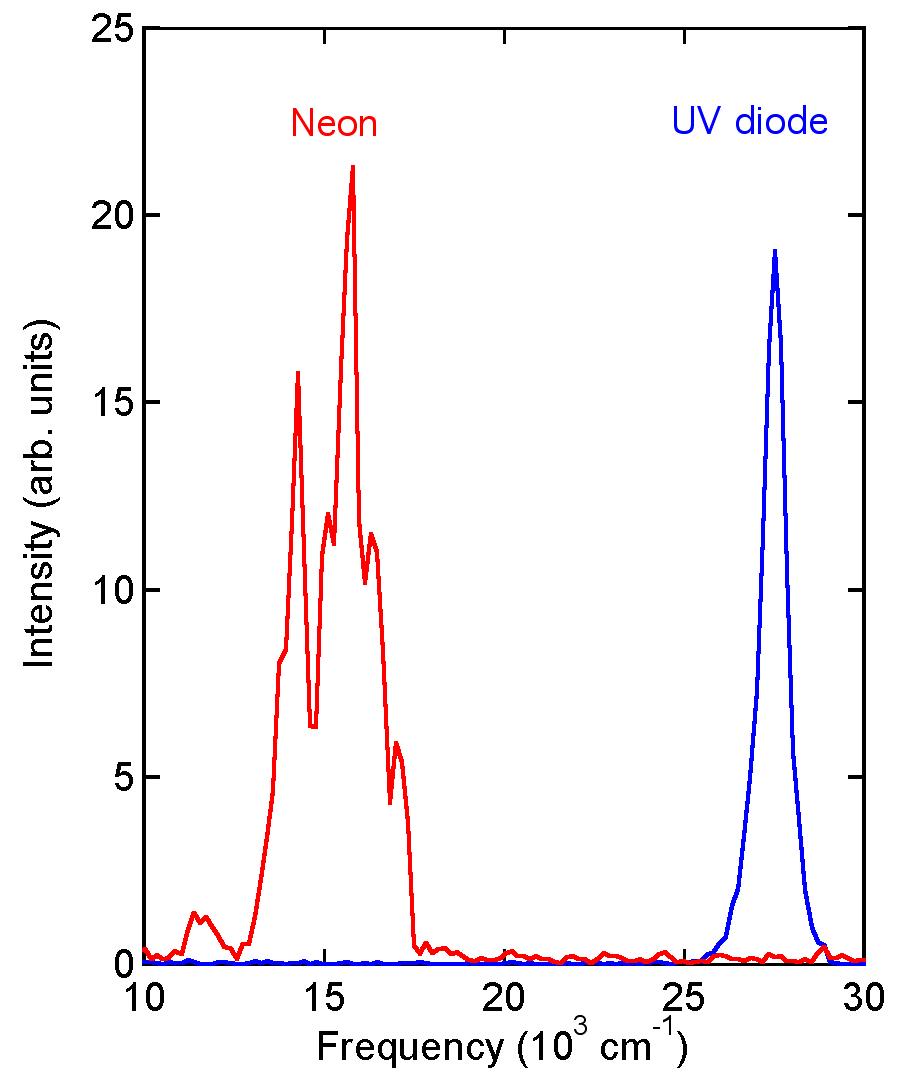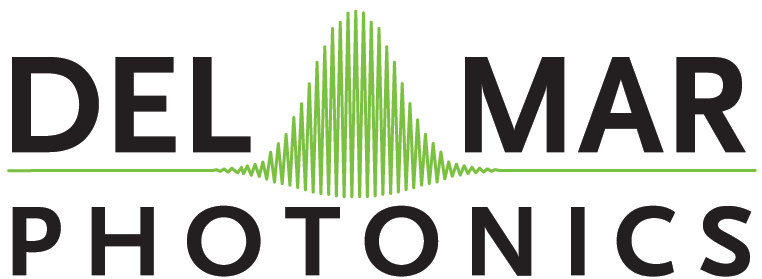
MINIATURE HIGH THROUGHPUT UV/VISIBLE/NIR SPECTROMETER
ĀNUENUE
Spectral methods are currently widely used in research, medicine, quality
control, hazards detection and other fields. Real time spectroscopy using
multichannel detectors is the backbone of most such applications in the
UV/Visible/NIR regions. Some sort of the dispersive element (prism or
diffraction grating) is usually used in these devices to break the incoming
light into spectral components and distribute them across the detector array.
But it is not the only way to make use of the multichannel detection technique.
In fact back in sixties when the only multichannel detector available was the
photographic plate several works in the field of holographic spectroscopy
appeared. The spectral hologram (known now as the static interferogram) created
by the shearing or tilt interferometer was recorded using photographic methods
and the spectrum was reproduced with the aid of the optical Fourier transform.
These early devices were called holographic Fourier transform spectrometers
(HFTS) due to the fact that the spectral hologram was actually the Fourier
transform of the spectrum. Advances in the computing and in the multichannel
detectors in seventies resulted in holographic spectroscopy all but forgotten.
Only in late eighties the holographic spectroscopy found its use in the remote
sensing thanks to the ultimate throughput advantage. In contrast to the
dispersive spectrometer, where the spectral resolution dictates the size of the
entrance slit, in the holographic FTS there is no intrinsic restriction on the
size of the radiation source. Still the instruments used in the remote sensing
are quite complicated optical systems designed for precise synchronization
between the scene movement and the detection process. No commercial products are
available using holographic spectroscopy and sufficiently versatile to be easily
adaptable for various applications.
This market niche is possible to fill now with the introduction of the
ĀNUENUE -
patented miniature
Holographic Fourier Transform Spectrometer for the UV/Visible/NIR based on the single piece Sagnac interferometer. This versatile instrument can be used with
any CCD or CMOS camera.
The basic version made from BK7 glass utilizing spherical
lenses has following characteristics.
| Spectral coverage (nm) Resolution (cm-1) Throughput (mm2 srad) Size (mm) |
340 – 1000 260 (202 theoretical limit) 2.7*10-2 25 |
The
ĀNUENUE
throughput parameter is 280 times larger than for the spectrograph with the
same resolving power. Even an order of magnitude throughput value can be
achieved if aspheric lenses are used in the interferometer. With the throughput
that large the signal-to-noise ratio achievable with this instrument is
significantly better than for the spectrograph using the shot noise limited
detectors.
Examples of spectra measured with the
ĀNUENUE
spectrometer are shown below. A broad
spectral coverage is confirmed by successful detection both the neon lamp
spectrum and the emission of the UV diode.

Spectra of neon lamp (red trace) and of the UV diode (blue trace)
measured with the
ĀNUENUE HFTS
spectrometer.
The large throughput advantage of the novel instrument determines its possible
applications. One example is the quality control. A color camera is capable to
detect spectral information only in three spectral regions – red, green, and
blue. With the new instrument the product can be characterized in 100 different
spectral regions. The large observation spot makes the testing procedure
hundreds times faster than with the dispersive spectrometer. Another possible
application is to simultaneously monitor spectral signatures from many different
locations. A large number of fiber optic inputs can be bundled together and fed
into the instrument. The presence of the characteristic spectral signature, such
as the luminescence band of the hazardous chemical will be thus simultaneously
monitored with a single instrument. Another possible application of the new
instrument is in the medicine. Fluorescent markers attached to the malign tissue
can be detected from a larger area making the medical procedure faster and less
expansive.
Request a quote for basic ĀNUENUE HFTS spectrometer.
Request a quote for custom
ĀNUENUE HFTS
spectrometer, optimized for your application.
For custom quote please indicate:
Spectral coverage (nm)
Resolution (cm-1)
Throughput (mm2 srad)
Size (mm)
Quantity
Estiamted annual volume
We also manufacture OEM and private label HFTS.
Techical paper: Miniaturization of Holographic
Fourier-transform spectrometers
Where Del Mar Photonics product's names come from?
Del Mar means 'by the sea", and Photonics is all about optical waves. So we decided to choose terms popular in surfing and sailing communities. Our femtosecond lasers, amplifiers and systems are named after popular surf breaks around the world, and many other products names after sailing and nautical terms. ĀNUENUE HFTS spectrometer name means Rainbow in Hawaiian language.

Del Mar Photonics, Inc.
4119 Twilight Ridge
San Diego, CA 92130
tel: (858) 876-3133
fax: (858) 630-2376
Skype: delmarphotonics
sales@dmphotonics.com